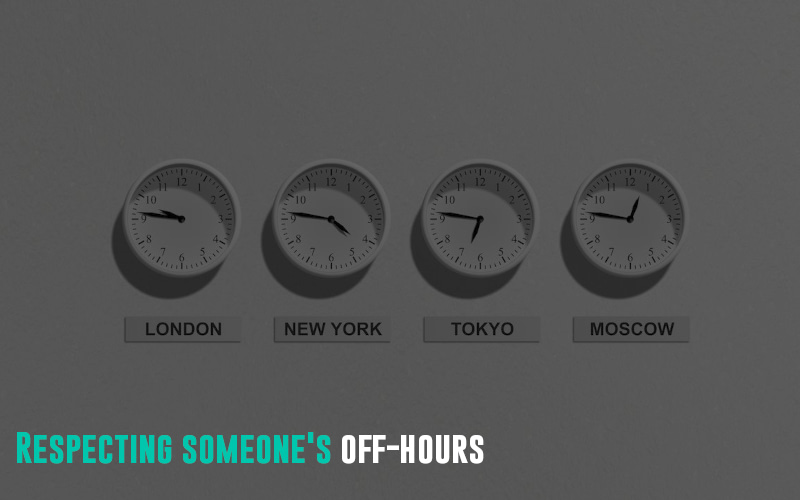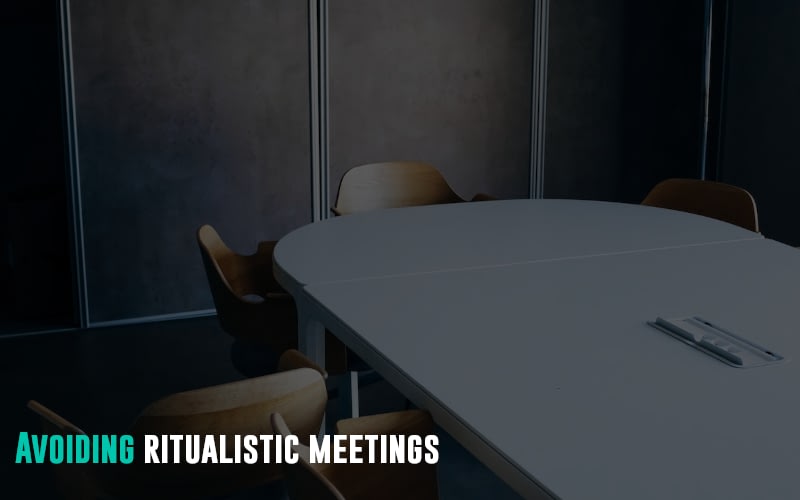When becoming a digital nomad, international worker, or someone who travels while working, there are some essential notes I’d like to review from my own experiences that will help you communicate more effectively. The realm of communications has changed rapidly since the pandemic and will likely continue to shape our future. Communication is critical as long as you are still working with other humans. So, let’s learn how to use remote communication effectively.
Understanding your team’s culture is essential if you work as a team. My thoughts and suggestions may not match your team culture, so it is important to discuss openly with your team leader and your team itself to understand what works and does not work. You can be an agent of change; however, that is the subject of another day. These are what I have personally discovered: what works and does not work.
Featured Image Source
Using the right remote communication tool
Communication tools help our productivity and streamline communication efficiency, but that isn’t always the case. This is a vast topic that I go into much finer detail about here. However, some takeaways are ensuring you are using the right tool and communication median to match the type of message you are trying to send. Wrong forms will undoubtedly cause disruption and friction amongst your team.
Respecting someone’s off-hours during remote communication
It is not unusual to work with folk worldwide in today’s business. Whether they are on travel temporarily (working remotely) or are permanent employees in different time zones, we need to consider time as a factor when we want to communicate. When a company runs entirely in the same time zone, this issue becomes less of a concern or is more rigid in expectations, so I will tackle both viewpoints.
For companies that operate in a standard time zone and are relatively rigid. Communication is still essential if you are on travel or are one of a select few to work entirely different hours. A team falls apart without communication. However, those forms can still be slightly less efficient but effective. Such as frequent status updates or tooling to help your peers or leadership team precisely understand where you are. You must invest highly in the trust of your peers. Working in isolation with flaky trust will undoubtedly lead to angst in your team. I’d even advise you to try and hit some 2-4 hours overlap (or more if possible) to ensure you can communicate directly with your team in regular meetings or one-on-ones. It is possible to operate effectively if you can build trust and regularly communicate in an agreed-upon way.
For companies accepting worldwide time zones, this becomes a much easier problem in team acceptance. Culturally, it is more or less established. To maintain a healthy work-life balance, you must trust one another with clear and set goals and resort to non-meeting forms of communication. For example, sending off-hour communications with the expectation of no immediate or day-after responses may be okay. I’ve only seen this form of teamwork succeed if both sides of the agreement can work independently. Make sure you trust and communicate to set this level of independence up for success.
Take care when you talk to your peers for effective remote communication
The critical piece of drilling in here is no one should expect anyone to slave away at a pace of 24/7. Communication during someone’s off-hours may snap them back into work mode and add significant stress to their day. Before snapping them back into work, consider whether it is right or follow my suggestions to pad the blow. Engaging your team as a peer or leader will only add stress and burnout. Folk needs time to themselves unless you are running against some “save the world” scenario, which I hope your team has entirely bought into.
People need time for themselves, their families, hobbies, friends, or extra jobs. You cannot assume you have access to someone’s free time beyond what is expected as a standard in your country (unless you pay them extra for it and it is agreed upon). Thus, don’t expect folk to respond. You’ll only burn them out.
Use features in your communication tools to delay sending until their working hours—alternatively, place <for working hours> as a clear indication at the start of your message. Also, as a team, encourage your team members to turn off their instant messaging during their non-work hours, and culturally, the “fear of missing out” feeling will dissipate. Instant messaging and social media allow us to be more connected than ever. Don’t be too connected, though.
Avoiding ritualistic meetings
With modern communication tooling and many tools to solve scheduling coordination, meetings are less cost-effective. A meeting’s cost can be amplified for each team member in attendance. It requires cross-time zone coordination and may break your team’s workflow. I strongly feel for a business perspective. Many repeating meetings are no longer cost-effective with modern-day tooling. Most strategic visions, announcements, and information sharing can be constrained to a limited set of members to be delimited to their teams or posted for the organization.
I suggest avoiding meetings that occur at a regular cadence (with some minor exceptions I will mention). If you have a meeting, have it short and with a small set of immediate stakeholders with a defined goal in mind. Some meetings that might be effective and worth the cost are all direct team-related or meetings centered around building interpersonal (non-business) connections.
Semi/regular stand-ups, team retrospectives, and team planning are worthwhile (although subjective) as they allow me to effectively plan and discuss our team’s steady beat. We can adjust and make action items accordingly. Meetings centered around building trust and emotional connection with those you work with are equally important. These come in the form of face-to-face on-ones or team social events. The team falls apart without trust, and building trust takes a long time (and is easy to shatter). These are the only regular meetings I’ve found helpful in my career.
Get to know your team and stakeholders for effective remote communication
All relationships have trust as their foundation. The sooner one sees and understands the fundamentals of trust, the sooner you can leverage it in your day-to-day interactions and your business beat. However, never expect trust to be built in and automatic. It is never that simple. Some folk may be more apt to trust immediately than others, but I always consider this initial trust a “weak” form instead of a potent form of trust. The only proper and sturdy form of trust is built over a long, consistent relationship built on transparency and honesty.
One small lie, anger outburst, and mistake in all manners can tear up that trust and take you back to zero. So respect those around you and strive to build a relationship of trust continuously.
How does one build trust in others? It is more than just getting your work done on time and treating your peers as automaton systems doing the same. Take the time to get to know your leadership and your team members. Show your true, genuine self; don’t feel you must hide who you are. Work relationships are still human, and you must treat others the way you want to be treated. Be kind, be consistent, offer help, ask questions, and be interested in others. Avoid always just talking about business.
As your trust in your team builds, your cohesion will build, communication will flow, work will be done faster, and most importantly, the small stuff matters less. You won’t need so many status updates as, undoubtedly, your team will trust you enough that you are working. On the other hand, you will need to give updates on where you are, and your level of working autonomously will be respected.
Provide status updates more frequently for effective remote communication
A lot of teams make real-time stand-ups semi-regularly or even daily. These are useful to stress only the importance for you as a successful team member to synchronize what you are doing and if you are stuck on something. Don’t expect your team to trust you fully unless you have a long-term relationship. Thus, over-emphasize communication to build that trust. Let them know you are working towards a goal and where your time is going. These details are the foundational pieces of starting to build that trust.
Failure to keep your team in the loop will lead to all sorts of emotions from your team that will lead to frustration, distrust, and dysfunction if not steered in the right direction. Don’t let this happen to you.
Please communicate with your team and find a regular or effective communication that works for them and enables you to work independently. Keep focused on building the trust of your team members and expect over time. Then, you can relax more as they will build confidence in your commitment to being a part of the team.
Don’t overinflate or stress the importance
Every business, team, and person is trying to overinflate their importance. We all want to feel important. This doesn’t give anyone the right to churn and burn others for the sake of that sense of overinflation. I am known for being a hard worker, and I put my heart and soul into my work. However, I do look at things holistically. If my work is not immediately or in the near term saving lives, then it’s probably not that important.
Keep this perspective in mind and keep your reality in check. I often see folk needing to escalate to bring something to a great degree of importance only due to a failure of communication or scheduling. If this is the case, reflect on it and act to unblock the issue’s importance. Then, be sure to hold those accountable for needing to raise the escalation. This should be rare, or you may work in a toxic environment very well.
Conclusion
Thanks all for hearing my thoughts. I have a lot of ideas and perspectives on effective communication in the tech and business world, and I hope this experience helps you formulate your thoughts. Please stay tuned at Travel-Wise as we hope to enable the love of travel, community, and adventure. Yes, you can have it all.
Did you know Travel-Wise is a free trip-planning tool to help you make your next trip plans a breeze?







